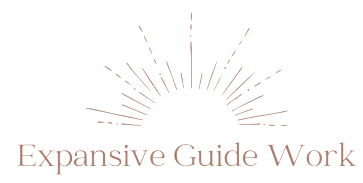Understand the Legal Status of Psychedelics in North Carolina
The use of psychedelics, also known as psychoactive substances, has been a topic of interest and controversy for many years. In recent times, there has been growing interest in the potential benefits of these substances for various medical and therapeutic purposes. However, the legal status of psychedelics can be a confusing and complex issue, particularly in the state of North Carolina. In this article, we will examine the current laws and regulations surrounding the use of psychedelics in North Carolina, and what it means for those who are considering using these substances for medical or therapeutic purposes.
Definition of Psychedelics
Psychedelics are a group of drugs that can alter a person’s perceptions, thoughts, and emotions. These substances have been used for thousands of years for religious and spiritual purposes, and more recently, they have been the subject of research into their therapeutic potential. Some of the most well-known psychedelics include LSD (lysergic acid diethylamide), psilocybin (magic mushrooms), and MDMA (ecstasy).
Current Legal Status of Psychedelics in North Carolina
In North Carolina, psychedelics are classified as Schedule I controlled substances. This means that they are legally considered to have a high potential for abuse and no accepted medical use. As a result, it is illegal to manufacture, distribute, or possess these substances in the state.
However, there have been recent developments in the legalization of medical marijuana in North Carolina, which has sparked a debate about the legalization of other substances, including psychedelics. Despite this, there is currently no legislation in place to legalize or decriminalize the use of psychedelics for medical or therapeutic purposes.
The Role of the Medical Community in the Legalization of Psychedelics
There has been a growing body of research into the therapeutic potential of psychedelics, and many in the medical community have begun to speak out in favor of their legalization for medical purposes. Some of the most promising research has focused on the use of psychedelics for the treatment of depression, anxiety, and post-traumatic stress disorder (PTSD). In North Carolina the The Pearl Psychedelic Institute, “a nonprofit that aims to bring psychedelic-assisted therapy into mainstream practice through research, treatment, and training while reducing the barriers to patient access” has established itself in Waynesville, a rural community close to Asheville. They are one of the first sites for the FDA approved Expanded Access program for MDMA in the United States.
However, despite the growing support for the legalization of psychedelics for medical purposes, the medical community has been slow to embrace this change mainly due to its current legal status. This is in part due to the lack of clear guidelines and regulations surrounding the use of these substances, and in part due to the stigma that still surrounds them.
The Future of Psychedelic Legalization in North Carolina
While the future of psychedelic legalization in North Carolina remains uncertain, there is a growing movement towards legalization, both nationally and internationally. Many organizations and advocacy groups are working to raise awareness about the therapeutic potential of psychedelics and to push for changes in the law.
In conclusion, the legal status of psychedelics in North Carolina is a complex and evolving issue, and it is important for individuals to stay informed and up-to-date on the latest developments. To explore the evolving landscape in Asheville connect with the Psychedelic Society of Asheville. To follow what is happening in the North Carolina Triangle area, connect with the Psychedelic Society there. While there is still much work to be done in order to legalize these substances for medical and therapeutic purposes, there is hope for a brighter future, where individuals can access the benefits of psychedelics without fear of legal consequences.
